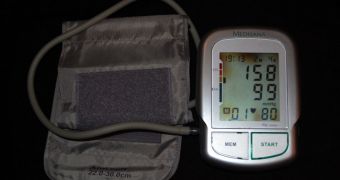One of the most common symptoms associated with post-traumatic stress disorder (PTSD) is the emergence of nightmares. Patients become unable to get a good night's sleep on account of them, and doctors have been looking for a way to address that. Thanks to a new study, they now can.
A group of scientists from the Mayo Clinic suggests that administering blood pressure medication to PTSD patients can lead to a decrease in the frequency and intensity of nightmares in these individuals.
For the purpose of this research, they are proposing the chemical prazosin. While no clinical trials have yet been conducted on its effects, scientists say that an extensive, systematic review of the literature covering this topic shows great promise.
A total of 12 past researches covering the effects of prazosin were included in this meta-analysis. Of the 12, four were randomized controlled trials. “There’s not much available for treating nightmares in terms of medications, so prazosin is a promising option,” Simon Kung explains.
“The studies showed the drug was well-tolerated and can take effect rapidly, within days to weeks, and some patients reported a return of nightmares when the course of prazosin was stopped,” he adds.
The Mayo Clinic expert was the principal investigators for the new study. One of the main conclusions he and his team arrived at is that the uses of prazosin may be more varied than simply addressing high blood pressure, PsychCentral reports.
What is also very interesting is the potential the chemical demonstrates for underlying treatments aimed at people suffering from non-PTSD nightmares. The chemical is especially well-suited for this task because it has very few side-effects.
In addition to being bad in themselves, nightmares cause a variety of other problems, including stress and loss of sleep. Behaviors such as alcoholism, substance abuse and contemplating suicide are not uncommon afterwards.
Experts believe that chemical messenger receptors such as norepinephrine may be excessively activated or stimulated in the brains of PTSD patients, and that this may contribute to the nightmares.
“The thinking is that pharmacologic agents, like prazosin, that block these receptors may be ideal in treating nightmares,” Kung concludes.

 14 DAY TRIAL //
14 DAY TRIAL //